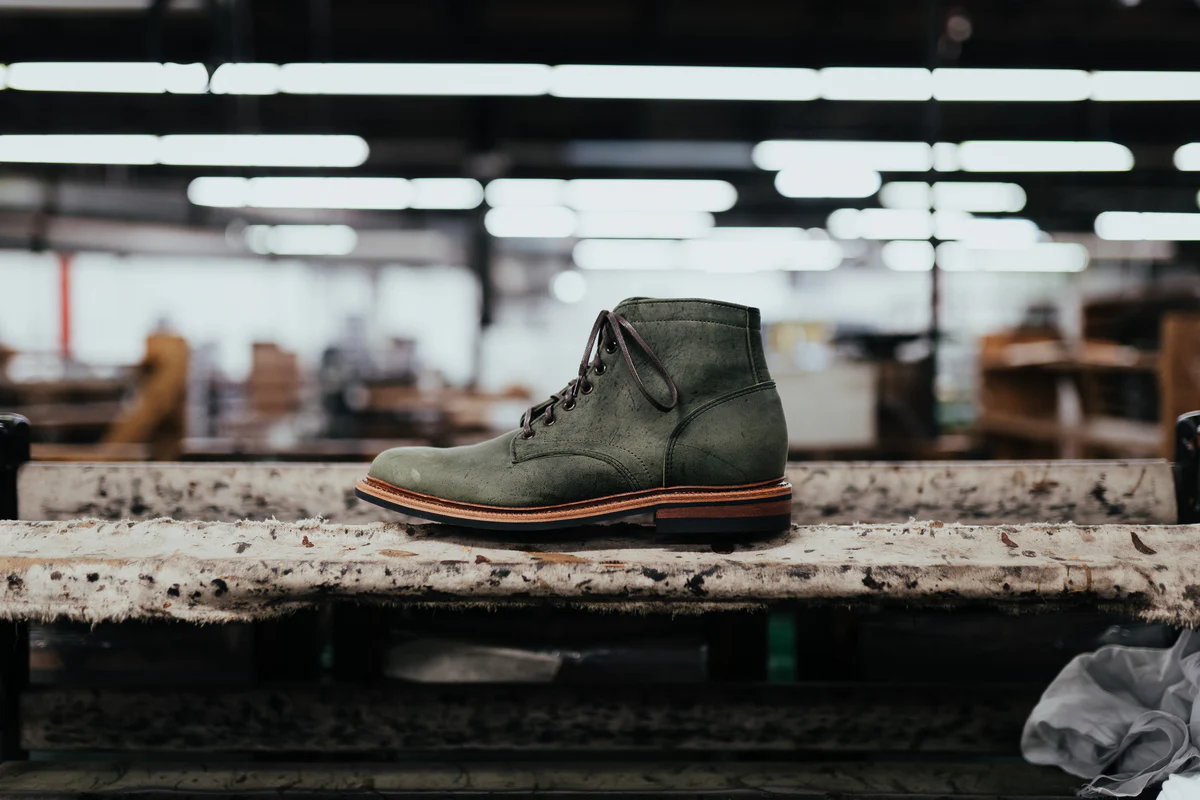Parkhurst Brand Review: The Limited-Drop Boot Revolution
When heritage boot drops sell out in minutes and customers refresh websites waiting for restocks, you know something special is happening. Welcome to the Parkhurst Brand phenomenon.
Established bootmakers rely on traditional retail models, but Parkhurst has created something different: a community-driven approach that combines limited availability with accessible pricing. Founded by Andrew Svisco in 2018, this company combines European manufacturing expertise with American final assembly to turn heritage boot buying into an event worth anticipating.
Innovation Through Custom Last Design
Most bootmakers use factory-standard lasts inherited from decades-old patterns, but Parkhurst took a different approach. Andrew Svisco and his team designed their own lasts from scratch, creating fits that prioritize comfort without sacrificing style.
This isn't just about vanity - it's about functionality. Their custom lasts feature roomier toe boxes that accommodate wider feet, thoughtful arch support, and heel shapes that reduce slippage. Most importantly, they're designed for the way people actually wear boots today, not how they wore them in 1920.
The result is immediately noticeable when you try them on. Where other heritage boots might require extensive break-in periods, Parkhurst boots feel comfortable from day one while maintaining the structured support serious boot enthusiasts expect.
Exotic Materials at Accessible Prices
Here's where Parkhurst's approach gets interesting: they offer materials typically found only on $600+ boots at price points under $450. Kudu leather from C.F. Stead (UK), Italian horsebutt from Maryam, Horween Chromexcel from Chicago - premium materials sourced globally that command premium prices elsewhere.
Their construction matches the material quality. Every boot uses Goodyear welt construction with hand-lasted assembly, cork midsoles that mold to your foot, and hardware selected for durability rather than cost savings. They've even experimented with innovations like bamboo shanks and split reverse welts.
What makes this possible is their business model. By limiting production runs and selling directly to consumers, they avoid the markup chains that inflate prices at traditional retailers. The savings go into better materials and construction details.
The Limited-Drop Lineup
The Delaware Boot showcases their philosophy perfectly - classic service boot styling with modern comfort innovations. What makes it special isn't just the silhouette, but the material options: from standard Chromexcel to exotic kudu leather that would cost $200+ more from established brands.
The Allen Stitchdown offers their most technical construction. The stitchdown method creates a more casual aesthetic while providing flexibility that Goodyear welted boots can't match. Available in leather combinations you won't find elsewhere at this price point.
The Richmond Series demonstrates their material sourcing advantages. Italian Maryam leather, Japanese horsehide, C.F. Stead kudu - materials typically reserved for $600+ boots, offered in limited runs that sell out quickly among those who know quality.
The Bidwell Chelsea proves that slip-on convenience doesn't require construction compromises. Full Goodyear welt construction in a chelsea format, with the custom last comfort that makes them wearable all day.
The Community That Built Around Quality
What's remarkable about Parkhurst isn't just the boots - it's the community that's formed around them. Boot enthusiasts share sizing advice, post photos of aging leather, and celebrate successful purchases during limited drops. Forums light up when new leathers are announced.
This organic enthusiasm stems from genuine quality rather than marketing hype. When customers become advocates without being paid to promote, you know the product delivers on its promises. The repeat purchase rate speaks volumes - people who try Parkhurst tend to come back for more pairs.
Why the Limited-Drop Model Works
Parkhurst's approach addresses a fundamental problem in heritage footwear: the disconnect between production capacity and demand for quality. Instead of mass-producing lower-quality boots to meet arbitrary volume targets, they produce smaller batches with higher material standards.
This creates natural scarcity that benefits everyone involved. Customers get access to exotic materials at reasonable prices, craftspeople can focus on quality over quantity, and the brand maintains pricing that reflects true costs rather than market positioning.
The limited-drop model also enables experimentation. When you're not committed to producing thousands of pairs, you can try unusual leather combinations, test new construction techniques, or offer custom options that wouldn't be economical at larger scales.
Technical Innovation Within Tradition
What sets Parkhurst apart isn't rejection of traditional methods - it's thoughtful evolution of them. Their split reverse welts provide classic aesthetics with improved water resistance. Bamboo shanks offer environmental benefits without compromising structural support.
Their approach to quality control is similarly innovative. While larger companies rely on statistical sampling, Andrew Svisco personally inspects many pairs, maintaining standards that scale with care rather than compromise with volume.
This attention to detail extends to their "factory seconds" approach. Instead of hiding minor imperfections, they transparently offer discounted pairs with clearly documented cosmetic issues. It's an honest approach that builds trust and makes quality more accessible.
Joining the Drop Revolution
Ready to experience what makes heritage boot enthusiasts refresh their browsers waiting for Parkhurst restocks? Browse Parkhurst boots on Fondeeyo to explore their current selection and compare models across different leathers and construction options.
Parkhurst has proven that exceptional boots don't require century-old heritage or $700 price tags. They've built something more valuable than brand recognition: a community of customers who genuinely love their products. In a market often driven by nostalgia and markup, that enthusiasm speaks volumes about actual quality.
Looking for more American bootmakers that prioritize craftsmanship over hype? Explore our complete brand directory to discover quality alternatives to mainstream heritage options.
